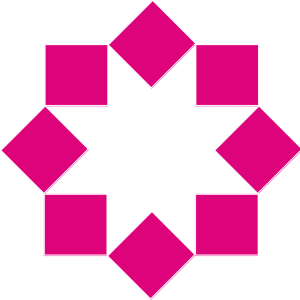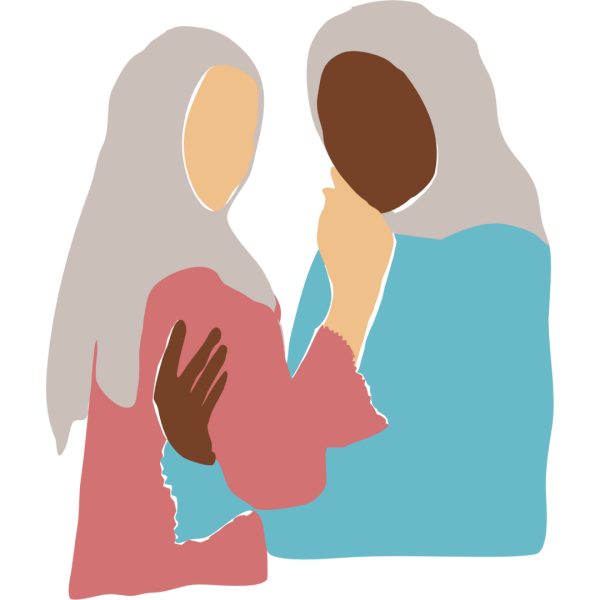
Sahara Scotland
سحارة – Arabic सहरा – Hindi صحرا - Urdu
Specialist casework service for Muslim & BME women in Scotland
Register for our Sahara Scotland Service here.
Sahara Scotland is an Independent Domestic Abuse Advocacy (IDAA) service provided by Amina MWRC.
Sahara is a specialist domestic abuse case work service which provides culturally sensitive support to Muslim & BME women in Scotland who meet the following criteria:
- At risk or experiencing domestic abuse
- Women with insecure immigration status
- Require dedicated 1:1 support
Sahara Scotland caseworkers can provide support to women Services include:

Advocacy

Risk assessment & safety planning

Emotional support and a listening ear

Immediate to high-risk support

Crisis intervention

Support provided in community languages
What is Domestic Abuse?
The Scottish Government’s definition of domestic abuse in Scotland is:
"Any form of physical, verbal, sexual, psychological or financial abuse which might amount to criminal conduct, and which takes place within the context of a relationship. The relationship will be between partners (married, cohabiting, civil partnership or otherwise) or ex-partners."
What is Coercive Control, and how do I recognise it?
The definition of coercive control under Scottish legislation describes a range or pattern of behaviours that enable a perpetrator to maintain or regain control of a partner, ex-partner or family member.
This may include but is not limited to
- Isolating a woman
- cutting or limiting contact with family/friends
- playing mind games
- monitoring your phone calls
- controlling what you eat
- controlling how you dress
- limiting where you can go
- controlling how and what you cook
What is the Sahara Scotland service and how does it work?
Once a referral has been received- an intake form will be filled in.
The client will be contacted by our caseworkers to address any immediate safety issues.
The caseworker will complete a DASH RIC and work with the client to create an individualised safety and support plan.
The caseworker will hold regular risk and case reviews until the client is safe, either in refuge accommodation or within their own accommodation.

Psychological & Emotional Abuse
Psychological and/or emotional abuse could involve name calling, constant criticism, threats to them, their family or pets and being put down in front of others.
Using emotional blackmail, threats of suicide or using guilt-trip tactics. Similar to coercive control it can also include being isolated from friends and family.
They may also closely monitor your social media activity- controlling who you can communicate with or Constantly texting you and making you feel you can’t be separated from your phone.
Insisting that you give them your passwords to your email or your social media accounts.
Another common sign of abuse is limiting your movements, by stopping you from going to work, college or seeing your friends or family. They may also make unreasonable demands of your time by expecting you to provide a large amount of domestic labour (cooking multiple meals per day, cleaning, laundry, caring for children other than your own, household shopping). This can also lead to exhaustion which is a key element of abusive behaviour.
Emotional abuse can also include making accusations of having affairs, flirting, controlling what you wear and tracking your movements without your consent.

Financial or Economic Abuse
Financial or economic abuse can take many forms.
It may include money being withheld or being forced to borrow money.
In some cases it may involve being forced to make benefit claims, having to account for money spent, not being allowed to control own finances or not having access to your own bank account.
If your partner tries to control where you spend your money or does not give you enough money to buy food or essential items, this is also financial / economic abuse.

Physical & Sexual Abuse
Physical and sexual abuse may include but is not limited to hitting, slapping, choking, punching, threats with weapons and or death. It can also include rape, sexual assault, forced to imitate pornography, forced to have unprotected sex, penetration with objects, forced to have sex with others.
Your partner may have taken intimate images/videos with or without your consent, if they are threatening to share these images with others this is known as non-consensual dissemination of intimate images or revenge porn.
Why Sahara?
Addressing the intersectional needs of Muslim & BME women requires understanding cultural and religious values of the women, adopting an empathetic response to cultural and religious nuances that can impact how a woman accesses support and what measures should be put in place to ensure BME & Muslim women feel heard, understood and validated.
Amina MWRC is a by women / for women organisation, with a staff largely comprised of women from the BME & Muslim community who can clearly identify with the needs of our clients.
In 2021, the first year of our funding from the EQHR stream of the Scottish Government, the casework service supported over 80 women. In the last year we have seen a staggering increase of over 100%, with 388 women supported in 2023.
We have supported 1074 women experiencing domestic abuse.
Since 2021 we have seen an increase of over 100% in the number of women supported with NRPF (No Recourse to Public Funds) - with 388 supported in the last year.
Client Case Study

New case study will be posted soon.

